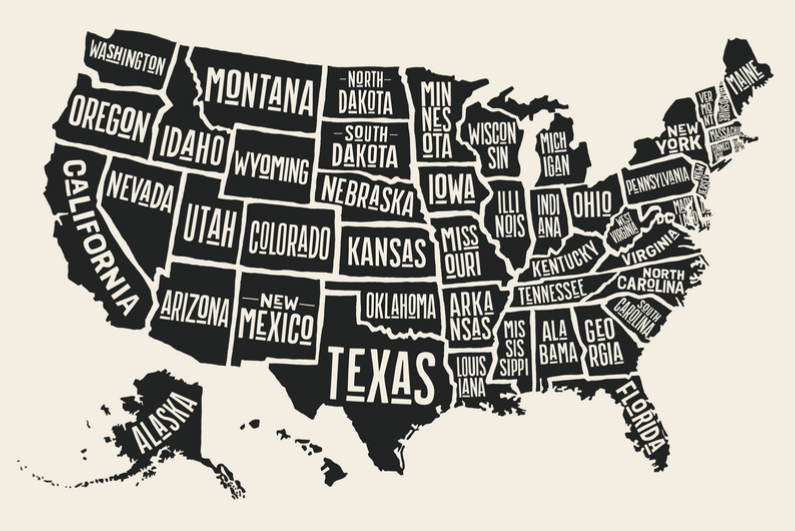Legalizing sports betting
For many years, states such as New Jersey pushed hard for legal sports betting on a federal level. Their main opponents throughout this time were the major sports leagues in the US, such as the NBA, MLB, NFL, NHL and the NCAA.
New Jersey was met with defeat at every turn, except for at the final hurdle. The last chance to bring an end to the federal ban on sports betting was through the Supreme Court. Following a vote, the court overturned the ban.
Not long after, a number of states moved to legalize sports betting, while more are currently looking to do similar.
One of the big draws for state governments is the potentially lucrative tax revenues generated by legal sports betting. Legal wagering also stops money going toward those parties operating illegal sportsbooks. Finally, it will help to create jobs in the local economy and support local businesses.
Expectations fail to meet reality
While there has naturally been much hope that state governments would earn significant tax revenues from sports betting, the reality seems to be somewhat different.
One key reason why expectations do not meet with reality is due to the slim margins on sportsbooks, meaning slim profits for the operators and an even slimmer tax cut for the authorities.
Then there will be months where there is very little or no profit made by the operators. For example, in February, Rhode Island saw losses of $2.35m for the month after a dismal Super Bowl.
The New England Patriots had a lot of support from local bettors leading up to the game. They ultimately were victorious and the Rhode Island sportsbooks took a significant hit.
In six of the states that began offering sports betting in 2018, four have not met their tax revenue projections.
Rhode Island has the heaviest tax rate of any state offering legal sports betting at 51%. It was hoping to see tax revenues of at least $1m monthly. However, the figure is currently closer to $50,000 each month.
In West Virginia, tax revenues are about a quarter of their monthly expectations, with it being half the monthly estimates in Pennsylvania and Mississippi.
Some factors are adding to these underwhelming figures. Most of these states have yet to implement mobile sports betting, which could drastically increase their tax revenues. For example, in New Jersey, more than 80% of sports bets are made through mobile sportsbooks. There was also the predictable Super Bowl result in which the spread was covered.
Changes on the way?
Rhode Island does look close to offering legal mobile sports betting in the near future, as does Pennsylvania.
However, the only mobile sportsbook in West Virginia recently had to close its operations for the time being. The operator’s technology provider is in the middle of a dispute with one of its third-party providers.
So the mobile sportsbook was not open for the start of the NCAA March Madness event, which is one of the most popular betting events of the year in the US.
Many states are in the process of debating and finalizing sports betting bills. Some seem to think that sports betting could be their saving grace. However, any additional tax revenues would be only a fraction of a percent of the majority of state budgets.
Summer will see Pennsylvania starting its mobile sportsbooks, which may be a catalyst for growth in the sector.
New Jersey goes from strength to strength, taking an average $1.8m monthly in tax revenues. It is closing in on Nevada in this regard.
Delaware is the other state that is meeting its projections. However, as part of a clause of the federal sports betting ban, it was already able to offer a form of sports betting in recent years. A significant portion of Delaware’s tax revenues comes from this long-running operation.
